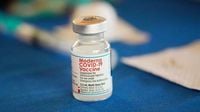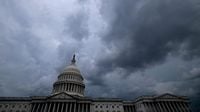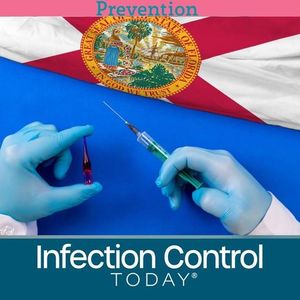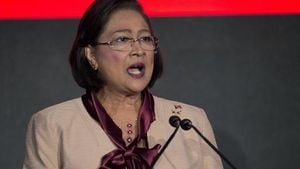Less than a month after Dr. Susan Monarez was sworn in as director of the U.S. Centers for Disease Control and Prevention (CDC), the agency has been thrown into turmoil following her abrupt removal, a wave of senior resignations, and mounting political pressure over COVID-19 vaccine policy. The shakeup, which unfolded in late August and early September 2025, has sparked a fierce national debate over the direction of America’s public health leadership, the independence of its scientists, and the future of vaccine recommendations for millions.
The first domino fell when Dr. Monarez, a career scientist known for her commitment to evidence-based policy, was ousted from her role. Her removal came after she reportedly resisted directives from Health and Human Services (HHS) Secretary Robert F. Kennedy Jr. to align CDC policy with his vaccine agenda and to dismiss respected health experts. According to a statement from her lawyers, Abbe Lowell and Mark Zaid, "When CDC Director Susan Monarez refused to rubberstamp unscientific, reckless directives and fire dedicated health experts she chose protecting the public over serving a political agenda. For that, she has been targeted. Dr. Monarez has neither resigned nor received notification from the White House that she has been fired, and as a person of integrity and devoted to science, she will not resign."
The fallout was immediate. Within hours, three senior CDC officials—Dr. Debra Houry, Dr. Demetre Daskalakis, and Dr. Daniel Jernigan—resigned in protest. Their departures were reportedly triggered by sweeping changes to the CDC’s vaccine advisory committee and new vaccine policies being set by Kennedy’s handpicked advisers. In his resignation letter, Dr. Daskalakis wrote, "I am unable to serve in an environment that treats [the] CDC as a tool to generate policies and materials that do not reflect scientific reality and are designed to hurt rather than to improve the public’s health. The recent change in the adult and children’s immunization schedule threaten the lives of the youngest Americans and pregnant people."
The exodus of CDC leadership has left the agency at a crossroads. Hundreds of staff members reportedly applauded the departing scientists in a rare public show of support—a “clap-out” that underscored the depth of internal unrest. Into this leadership vacuum stepped Jim O’Neill, the HHS deputy secretary, who was named acting CDC director while retaining his current post. O’Neill, whose background is in government and Silicon Valley investment rather than medicine or science, is a controversial choice. His history includes close ties to billionaire Peter Thiel and the SENS Research Foundation, which focuses on anti-aging science.
O’Neill’s views have raised eyebrows among public health experts. Back in 2014, he advocated for the FDA to approve drugs based solely on safety, letting the market determine effectiveness—a stance widely criticized as dangerous. Although he insists he is "very strongly pro-vaccine," his recent social media musings—questioning whether “omicron is the best vaccine” and suggesting the CDC could "redefine the word vaccine at will"—have stoked concerns about his grasp of vaccine science. As reported by The New York Times, experts warn that natural infection is not equivalent to vaccination, which offers protection without the risk of severe illness or long COVID.
The political reverberations have been swift and fierce. President Donald Trump, who returned to office in 2025, took to Truth Social to demand that pharmaceutical companies "justify the success of their various Covid Drugs." He wrote, "Many people think they are a miracle that saved Millions of lives. Others disagree! With CDC being ripped apart over this question, I want the answer, and I want it NOW." Trump, who once championed Operation Warp Speed and the rapid development of COVID-19 vaccines during his first term, now says, "I hope OPERATION WARP SPEED was as ‘BRILLIANT’ as many say it was. If not, we all want to know about it, and why???" He also claimed to have seen “extraordinary” data from Pfizer and other companies, but lamented that "they never seem to show those results to the public. Why not???"
The president’s remarks come amid growing skepticism and confusion about the CDC’s shifting vaccine recommendations. In early September, the Food and Drug Administration (FDA) approved updated COVID-19 vaccines from Moderna, Pfizer, and Novavax. However, the new guidance sharply limits recommendations to people over 65 and those with pre-existing health conditions. Secretary Kennedy announced on X, "The emergency use authorizations for COVID vaccines, once used to justify broad mandates on the general public during the Biden administration, are now rescinded. FDA has now issued marketing authorization for those at higher risk: Moderna (6+ months), Pfizer (5+), and Novavax (12+). These vaccines are available for all patients who choose them after consulting with their doctors."
This marks a significant shift from previous policy, which made COVID vaccines available to all Americans aged six months and older regardless of health status. The change comes at a precarious time: COVID-19 cases are surging again, with California among the hardest-hit states and a new variant, dubbed “stratus,” circulating widely.
Meanwhile, the CDC’s vaccine advisory committee—now entirely composed of new members appointed by Kennedy—is preparing for a pivotal September meeting. On the agenda are recommendations for newborn hepatitis B shots, infant RSV protection, immunizations for young adults, and the combined measles-mumps-rubella-varicella vaccine. Revisiting so many foundational childhood immunizations at once is unprecedented, and public health advocates worry that any weakening of recommendations could restrict coverage under Medicaid, the Children’s Health Insurance Program, and the Vaccines for Children program, creating new barriers for families.
The upheaval has drawn sharp criticism from across the political spectrum. In an op-ed published in The New York Times, nine former CDC directors and acting directors—who served under both Republican and Democratic presidents—warned that Kennedy’s actions are "Endangering Every American’s Health." They wrote, "What Health and Human Services Secretary Robert F. Kennedy Jr. has done to the C.D.C. and to our nation’s public health system over the past several months—culminating in his decision to fire Dr. Susan Monarez as C.D.C. director days ago—is unlike anything we have ever seen at the agency, and unlike anything our country has ever experienced."
Demetre Daskalakis, speaking on CNN, noted that Kennedy had not been briefed by CDC experts on critical topics like measles, COVID-19, and the flu. "No one from my center has ever briefed him on any of those topics. Perhaps he has alternate experts that he may trust more than the experts at CDC that the rest of the world regards as the best scientists in the areas," he said.
The stakes for the CDC, and for public health in the United States, are profound. O’Neill has promised to "refocus CDC on infectious disease" and "restore trust," but staff and state partners say that politicized decisions and budget cuts are already eroding the agency’s core work. The September vaccine advisory meeting will be the first real test for O’Neill’s leadership. If he can restore transparent scientific review and evidence-based recommendations, he may stabilize the agency. If not, the resignations of senior scientists could mark the start of a broader exodus, leaving states and families without clear guidance just as flu, RSV, and COVID-19 converge this fall.
As the CDC faces this critical juncture, all eyes are on O’Neill and the new advisory committee. The agency’s ability to maintain scientific rigor and public trust may determine not just the outcome of this crisis, but the future of American public health for years to come.





